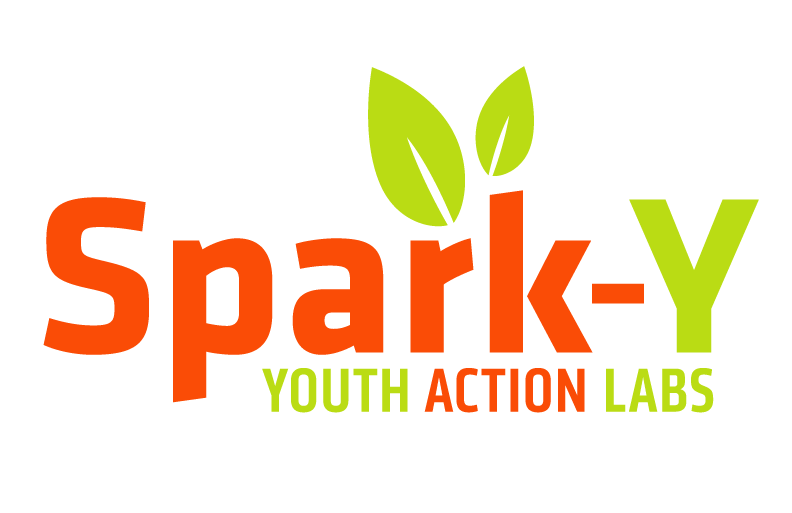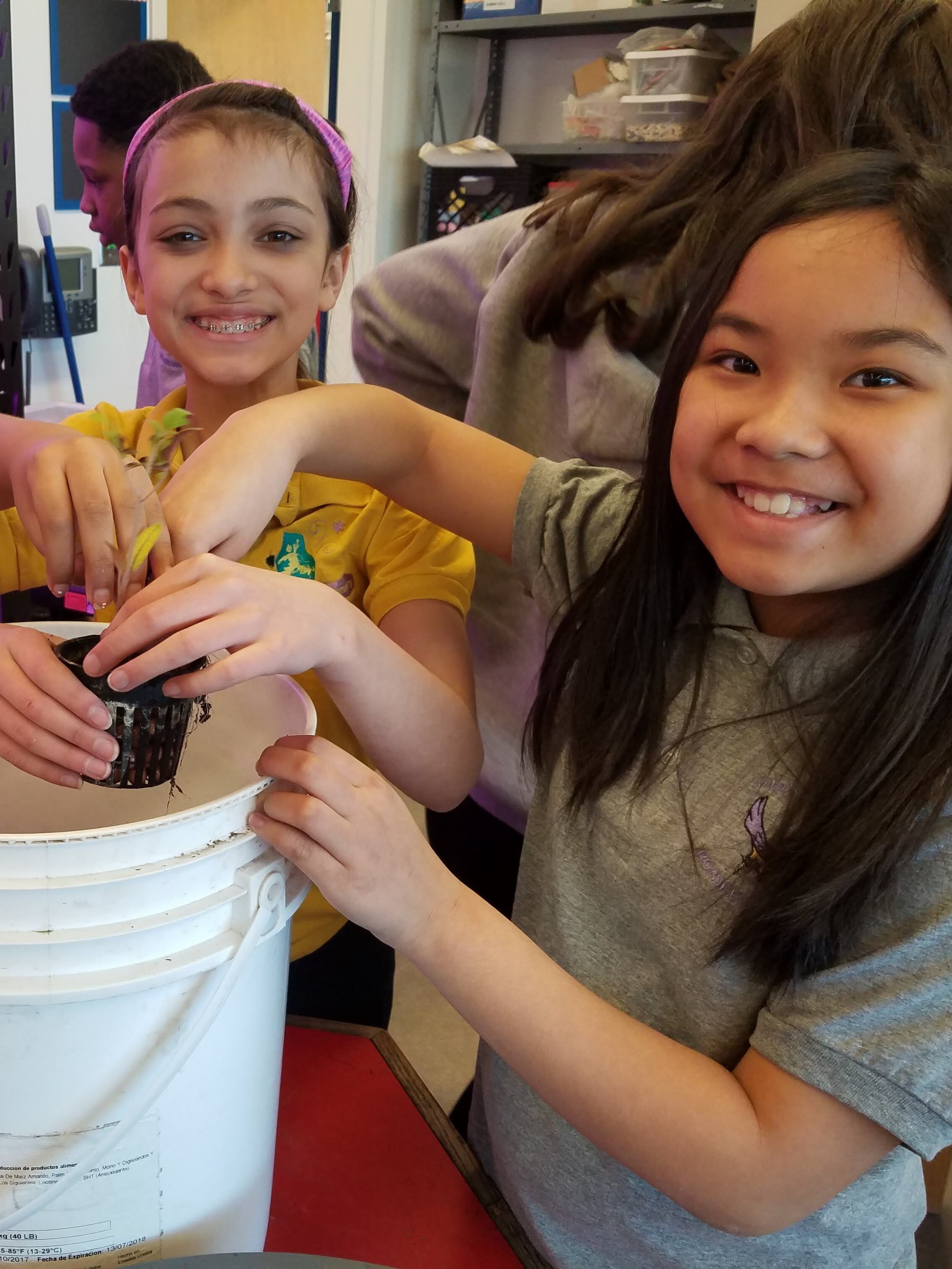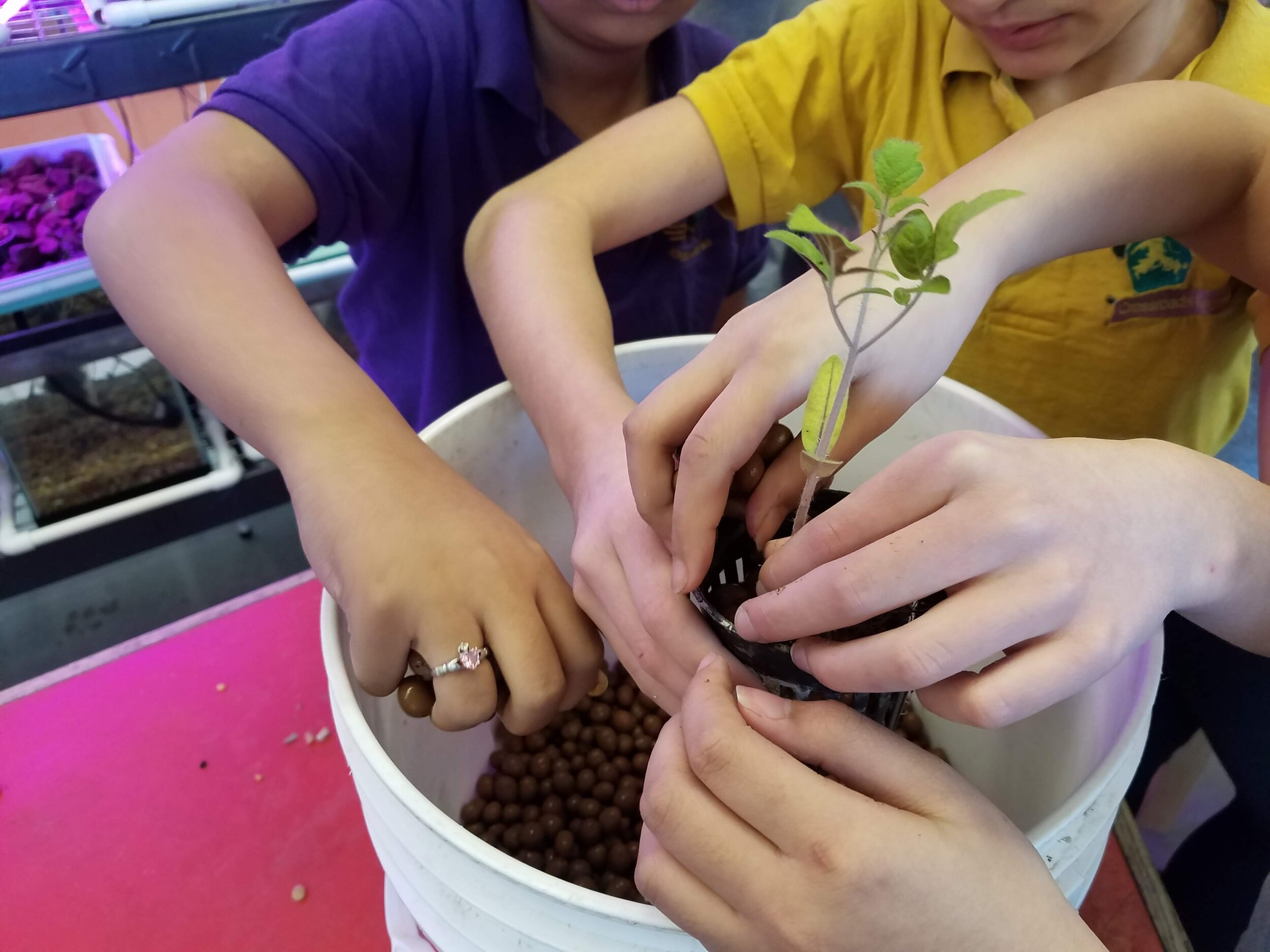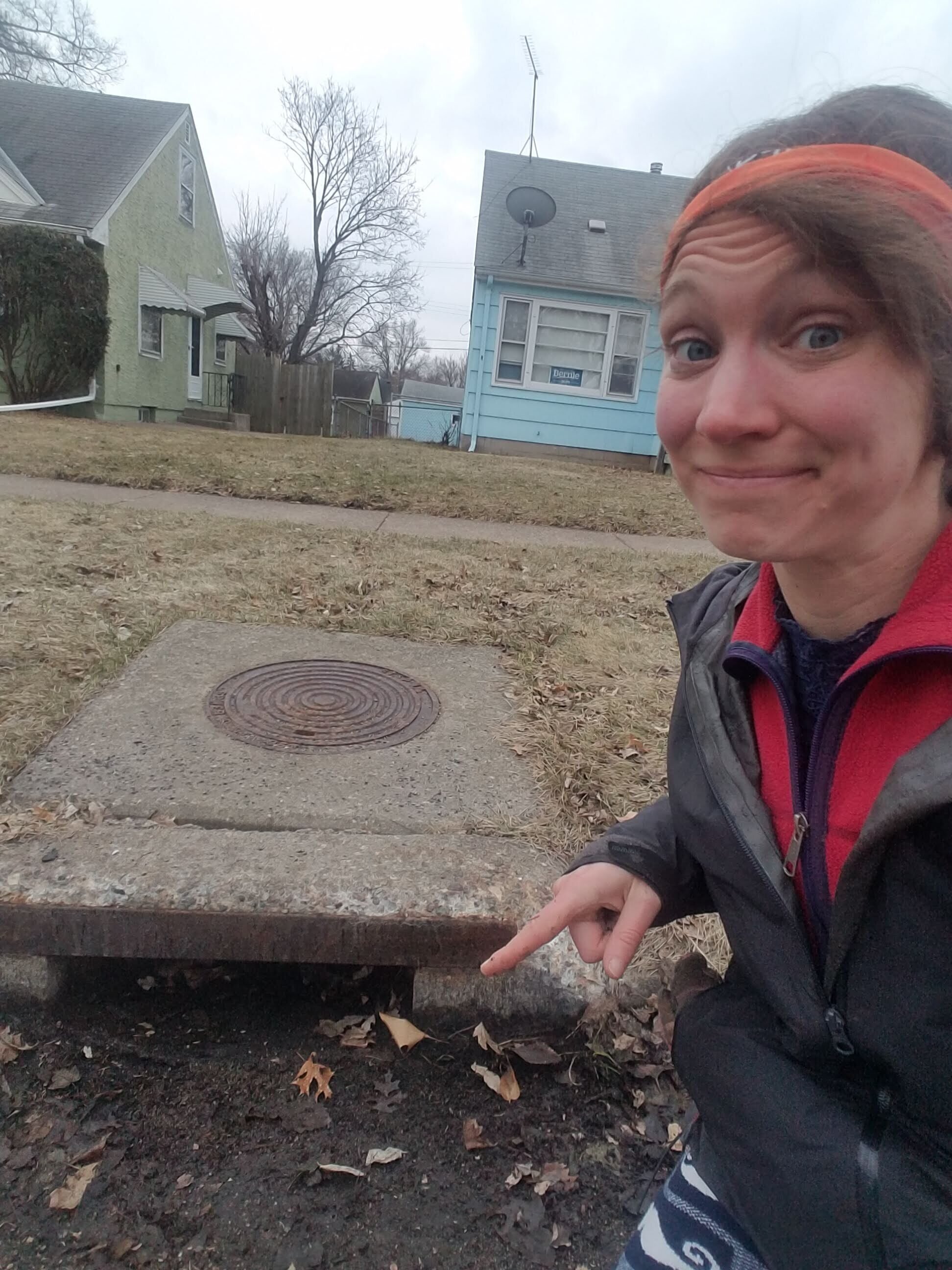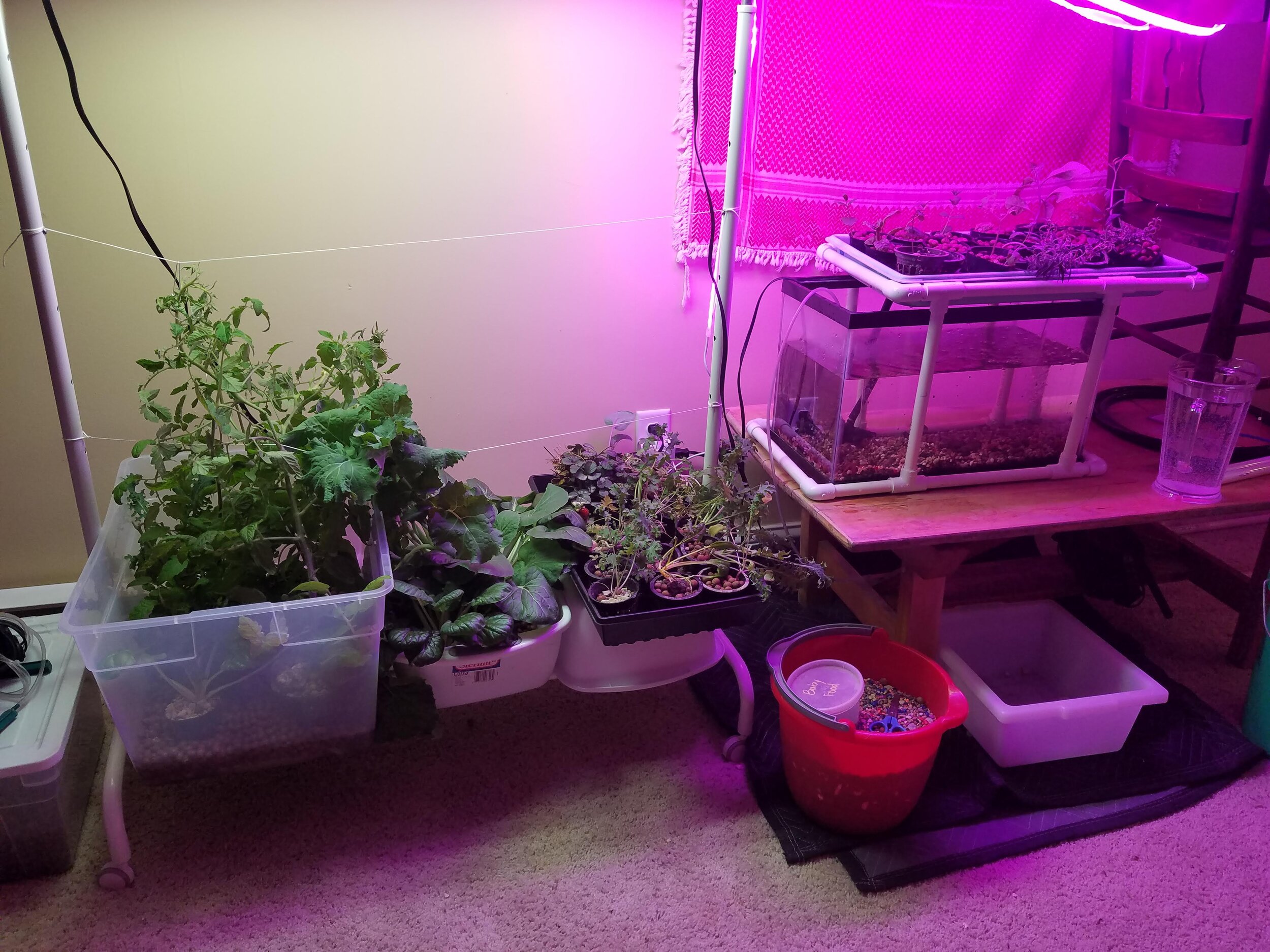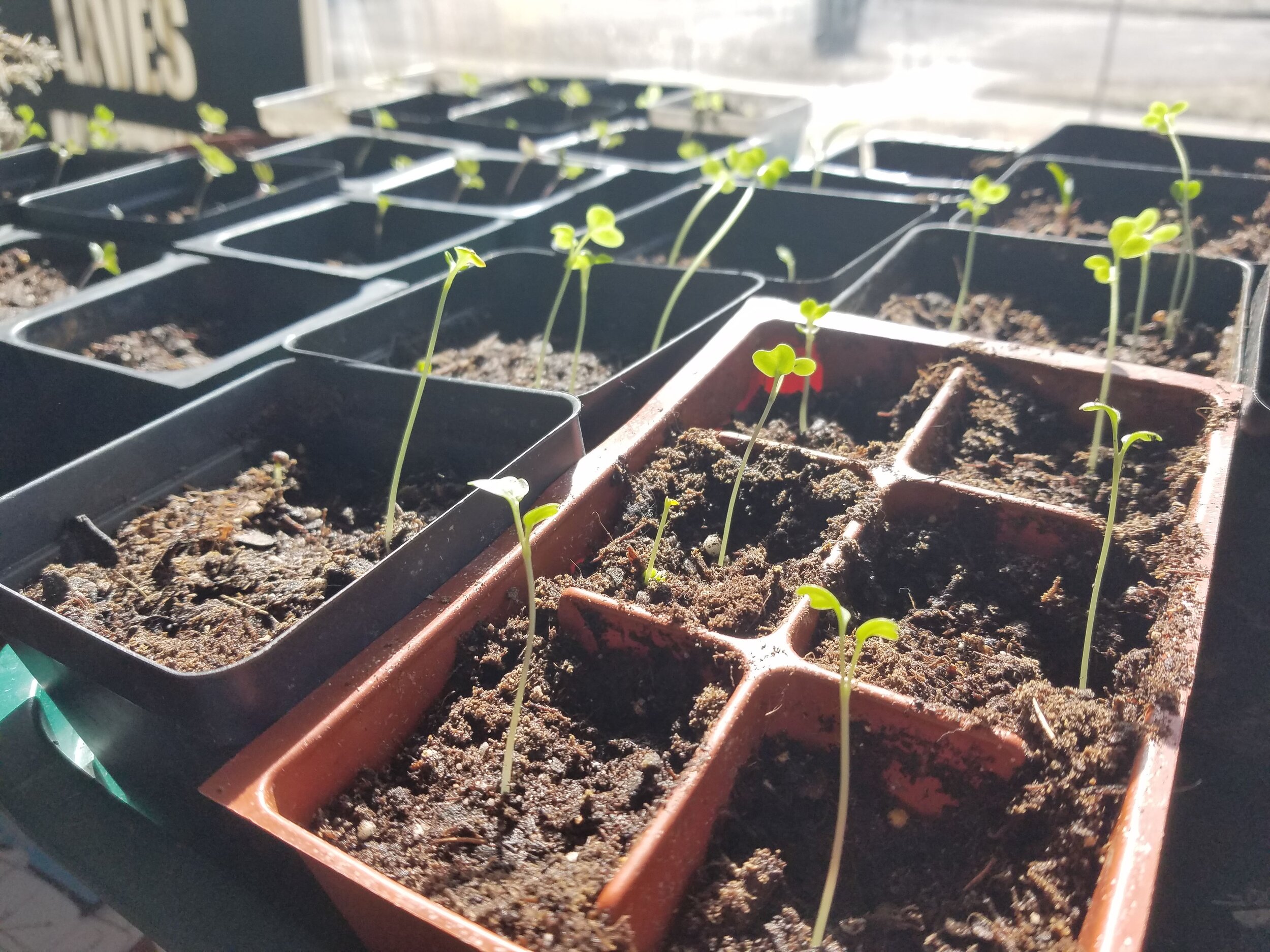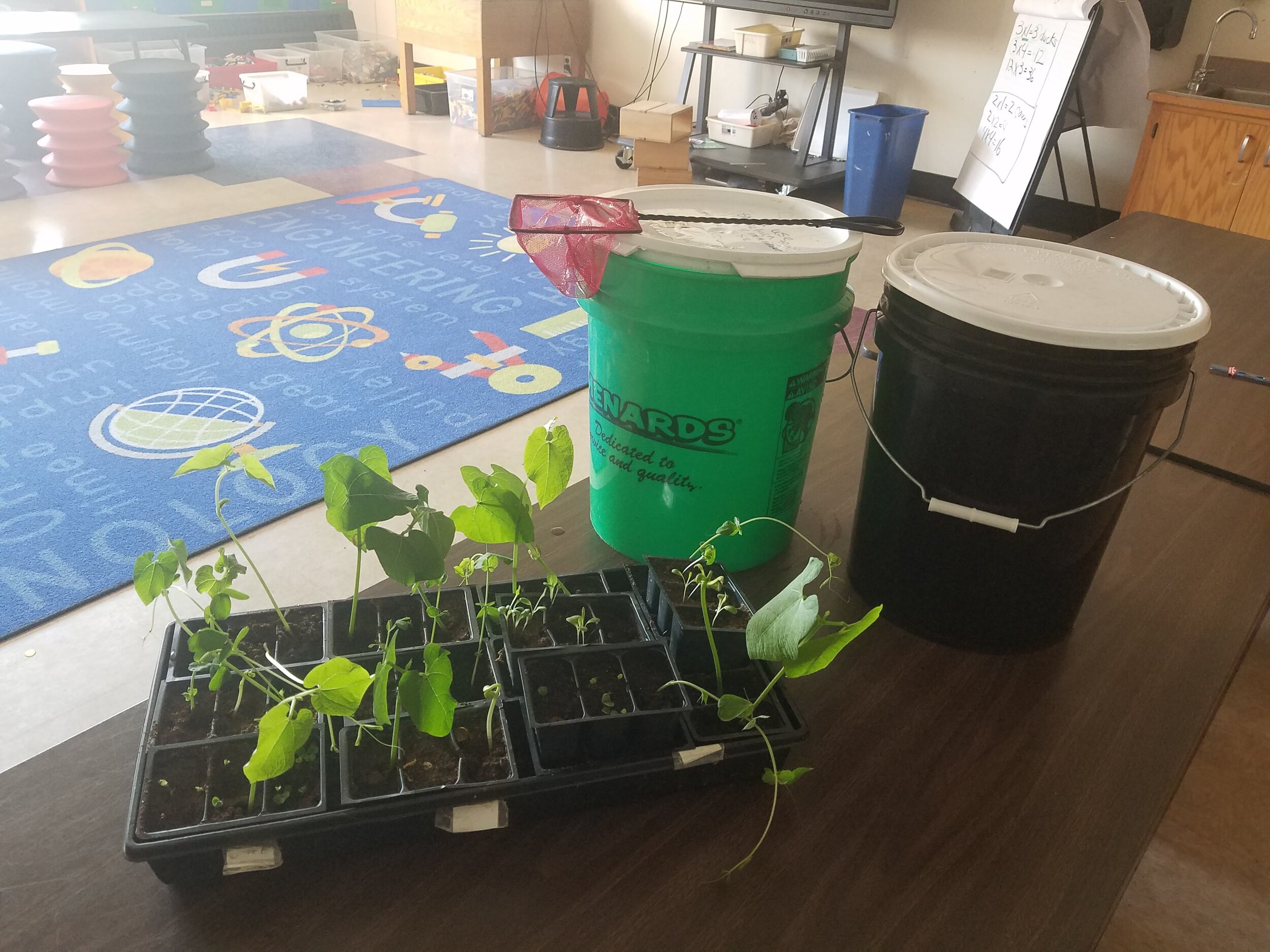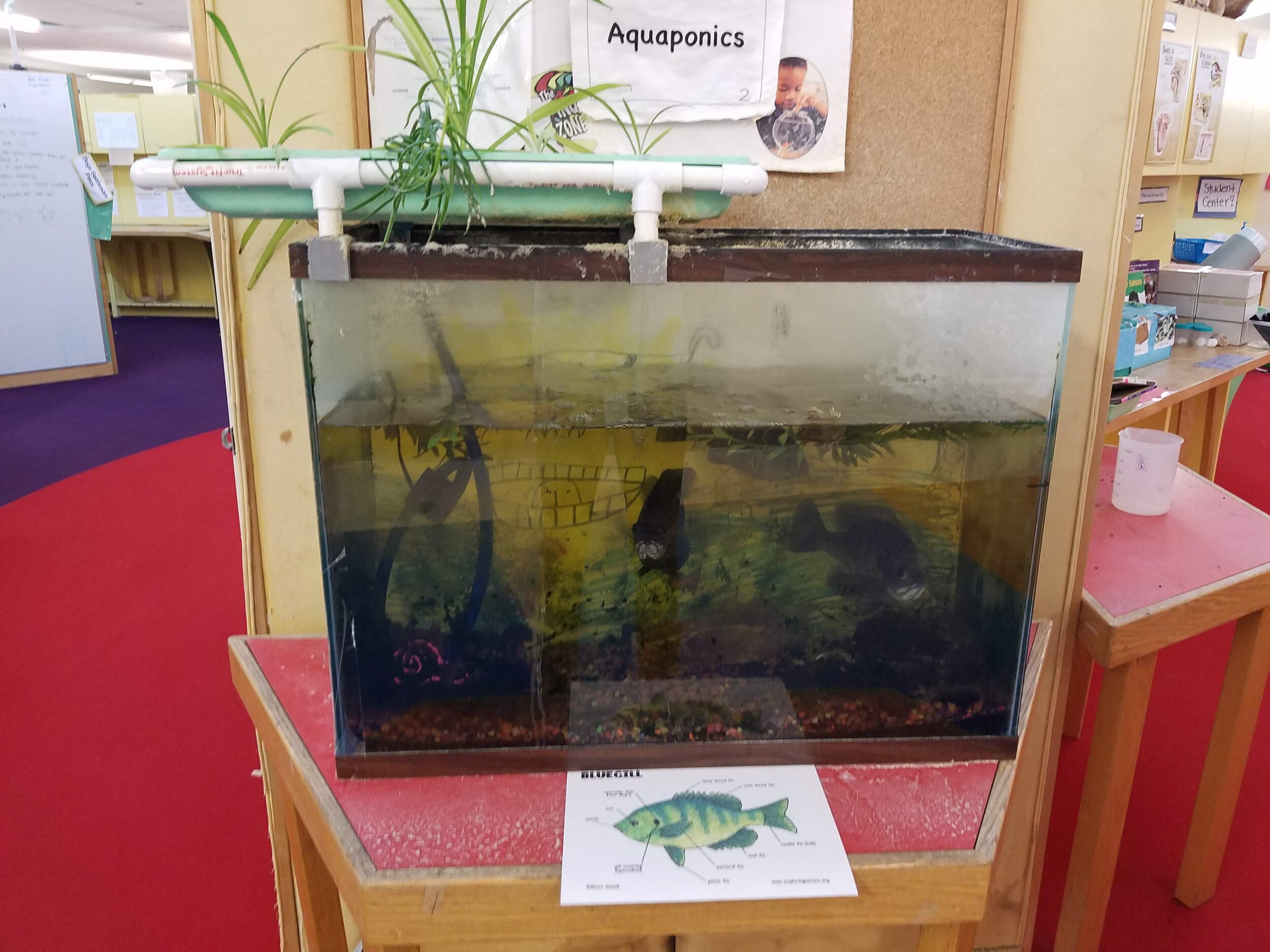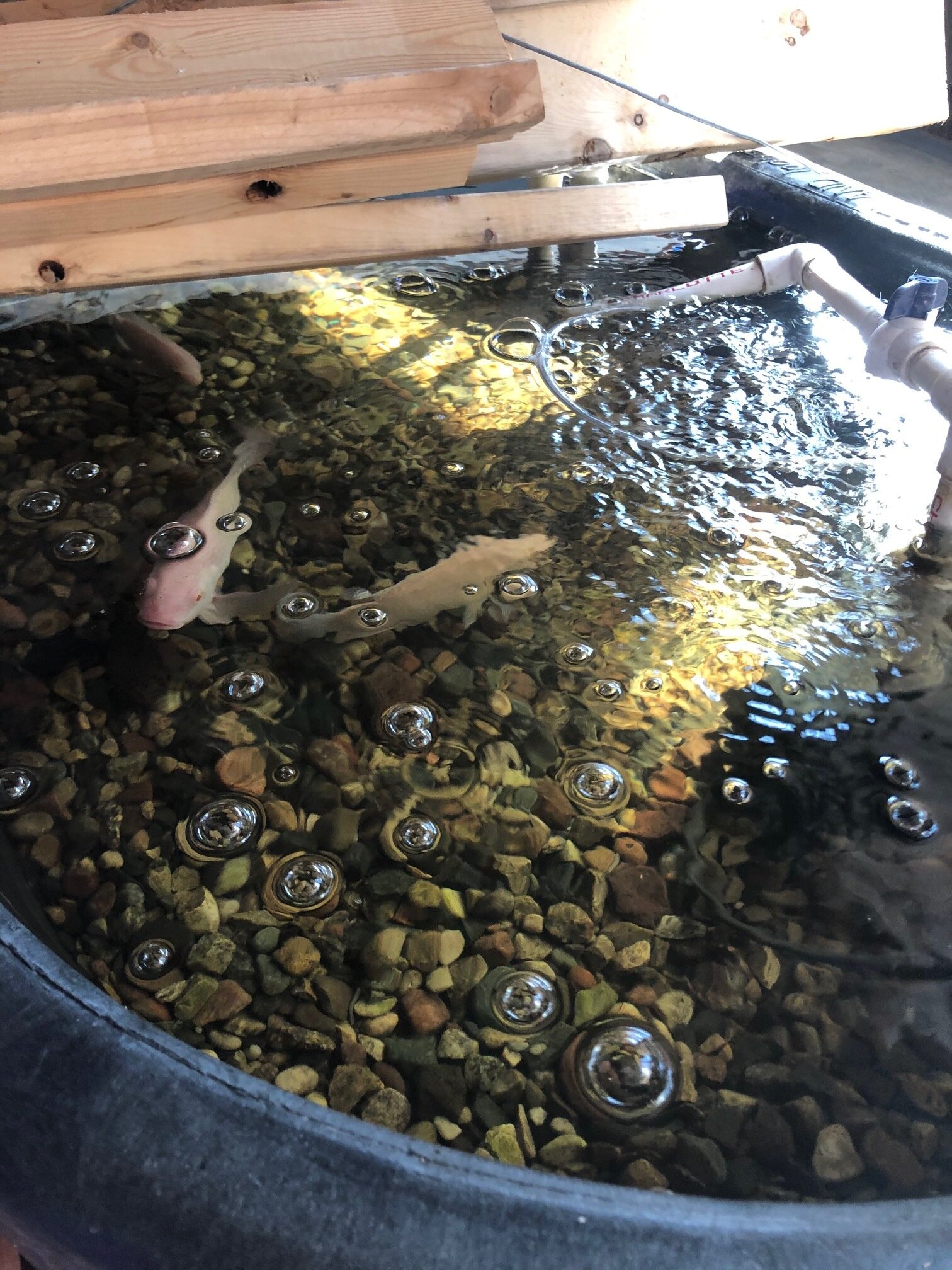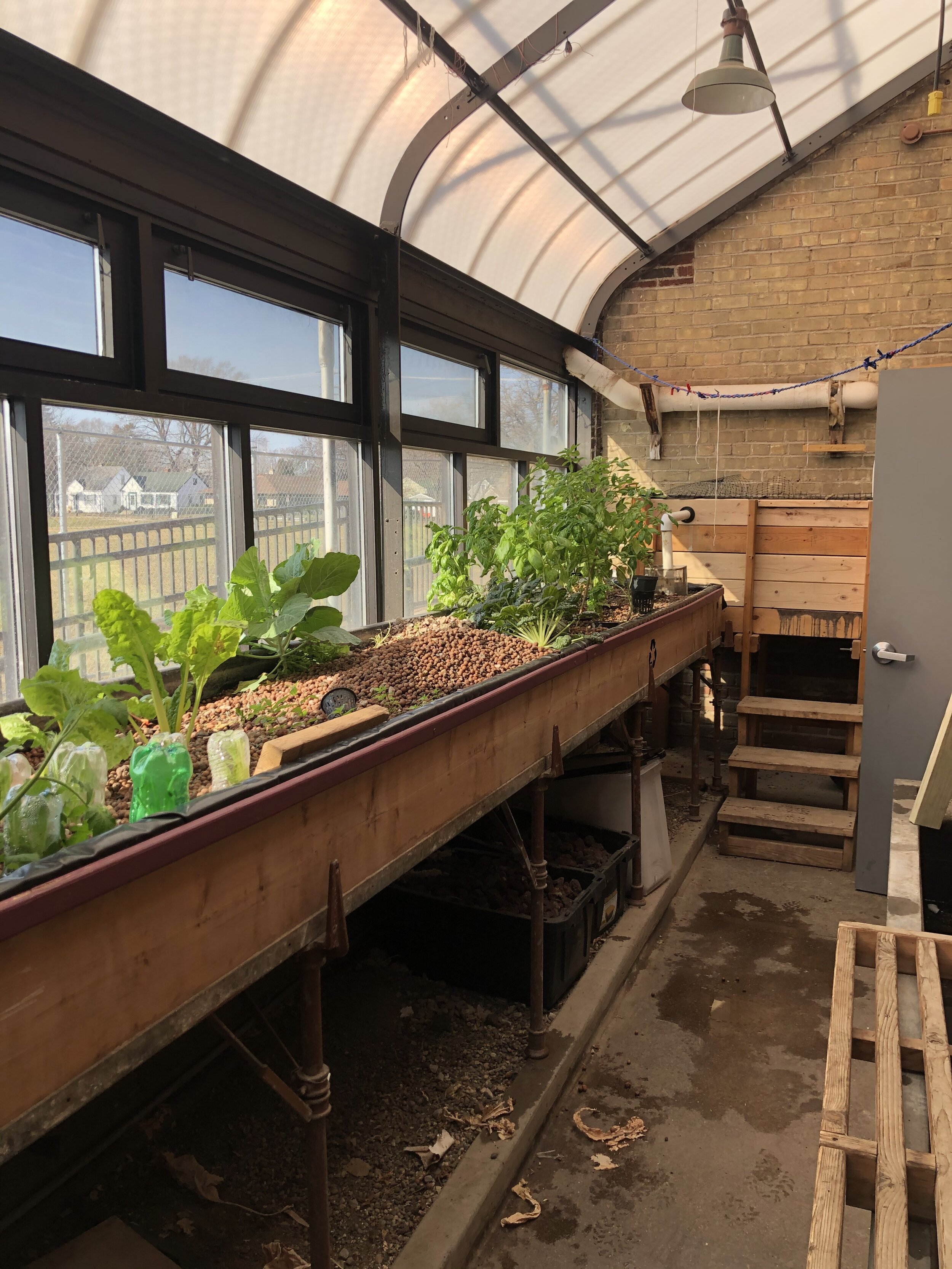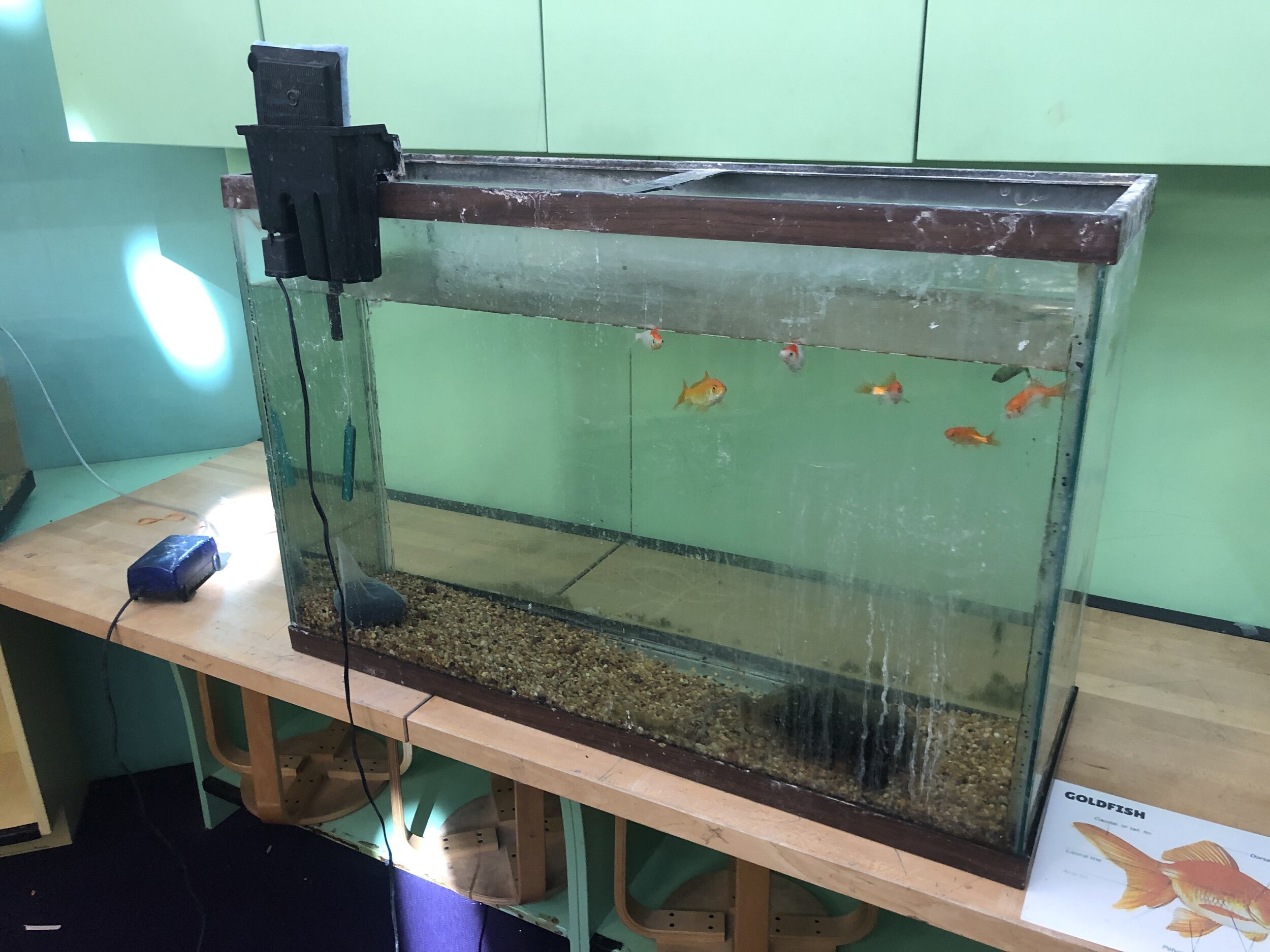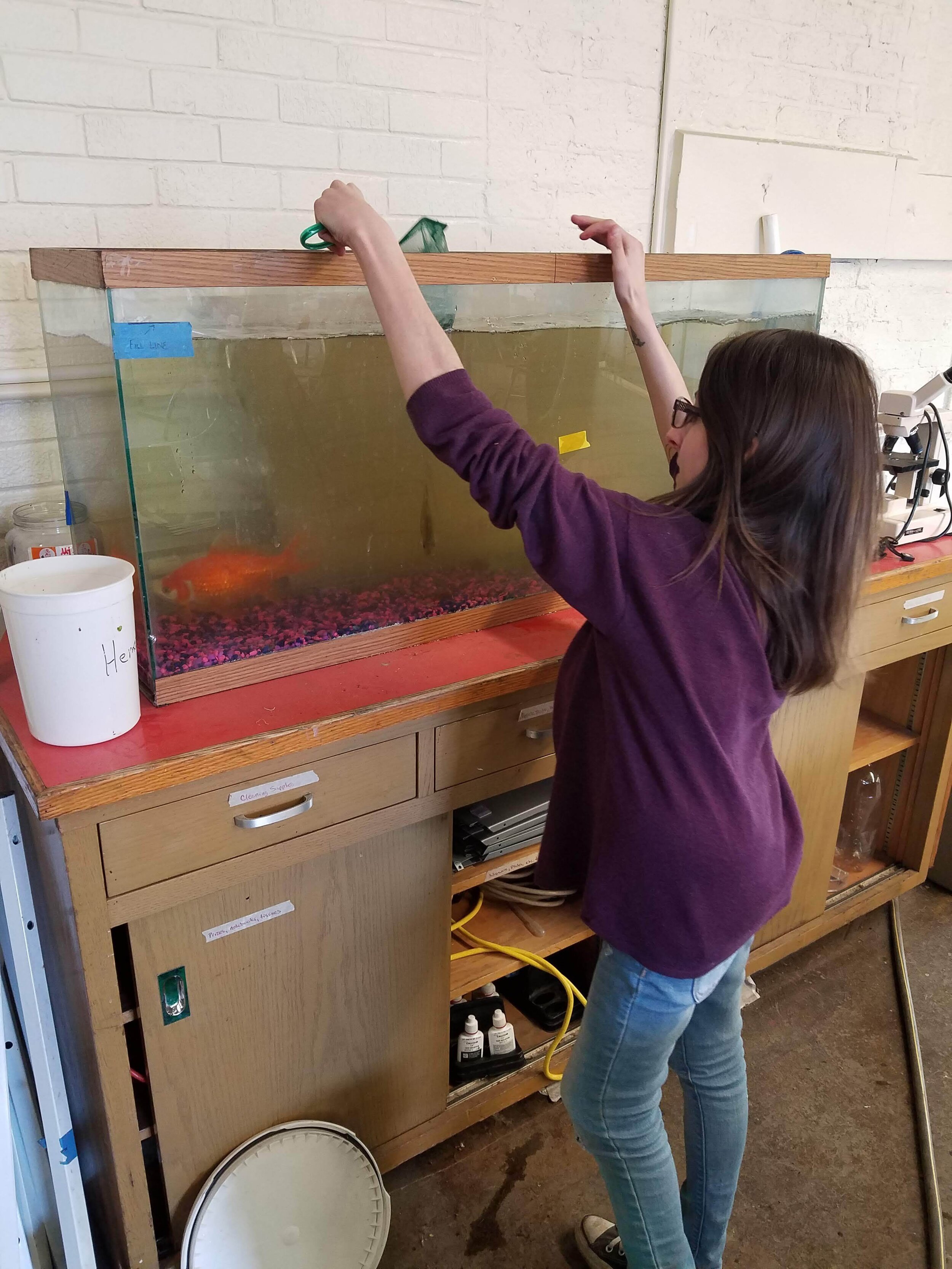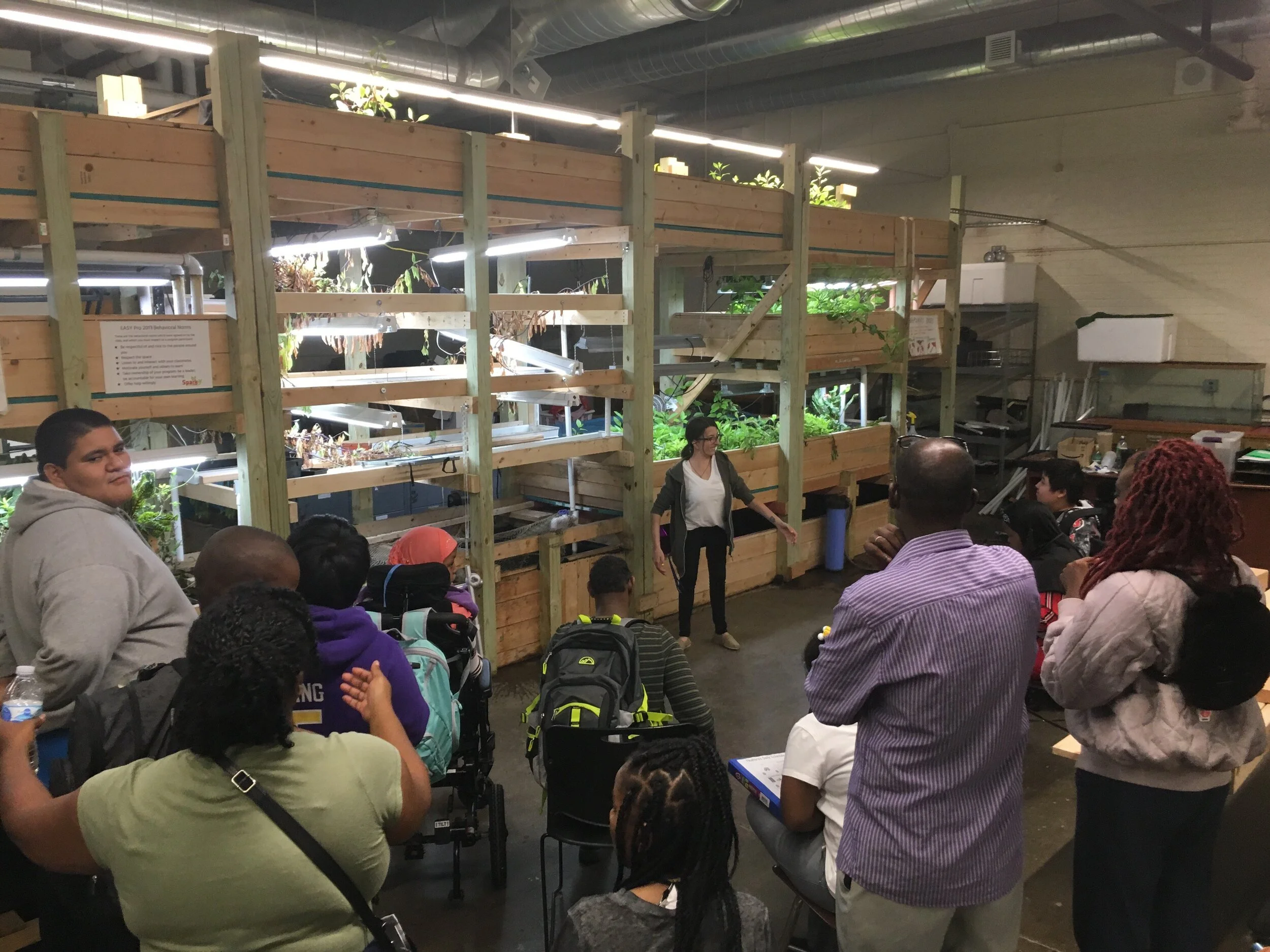The following blog post was written by Cecelia Watkins, Spark-Y Curriculum Director, on our partner program with Crossroads Elementary.
On Sunday afternoon, March 15, my heart sank. I had just heard Governor Walz’s announcement that all Minnesota schools would be ordered to close in an effort to curb the spread of the novel coronavirus, starting Wednesday. I also got word that Saint Paul Public Schools wouldn’t be opening on Monday or Tuesday either; after a week of no school due to a teacher’s strike, it would be total chaos to start school back up only to have it end two days later. We never even got to say goodbye to our students.
Just like that, all our carefully laid plans went up in smoke. How could we possibly do the annual 5th grade Aquaponics Unit at Crossroads Elementary now? After weeks of letting water flow through the students’ ten gallon tanks to establish nitrification, we had been just about ready to add bluegill and goldfish to the experimental ecosystems. Now all the fish had to be evacuated since we’d no longer have access to the school building. And what would happen to all the tiny kale and tomato plants the students had been tending for weeks, ones that they’d just transplanted?
It was easy to feel robbed in those early days of the pandemic. How unfair that these 5th graders wouldn’t get to experience the springtime fish fry when we harvest the school’s tilapia for fish tacos! Crossroads students look forward to this Aquaponics unit for YEARS--when the current 5th graders were 3rd graders they were asking me when they’d get to run their own 10 gallon tanks. Now we just don’t know how we can offer them that quintessential Spark-Y experience. I have no doubt students across the country and around the world have felt the pain of being denied experiences they’d worked towards for years, from proms to graduations.
After the first few days, the sense of injustice shifted to a daunting question: How do we facilitate empowering hands-on education when schools are closed and no one’s supposed to go within 6 feet of anyone else? How can we still be of service to our community and Spark-Y youth?
Ah, the miracles of technology! Most people will tell you, I’m generally somewhat of a Luddite: opposed to excessive use of technology. I’m always asking, “Could we do this activity outside?” and “How can we get away from screens to teach this?” Well, in times like these, I’m sold: screens and a variety of technologies have been incredibly helpful in adapting to the new world of distance learning. As the past two weeks have unfolded, I’ve been impressed by how quickly my Spark-Y co-workers have demonstrated excellence in adaptation: we’ve done hours long collaborative planning sessions with our co-teachers over Zoom, fleshed out entire Google Classrooms and FlipGrids, and edited together footage using WeVideo. As we prepared for schools to resume --distance learning style-- we continuously asked ourselves: how can we go beyond kids interacting with a screen? Sure, the chromebooks and iPads that schools have sent home with students will be a fantastic way for us to connect, but when it comes down to it, we’re still Spark-Y: all about hands-on experiences.
The trouble is, we know there’s a huge range in what supplies and supports our students have access to in their homes. Even if we make awesome student-facing activity instructions that don’t require any caregiver guidance, how do we ensure young scholars have what they need to do our hands-on projects? How do we not further widen the achievement gap during a time when that seems all but inevitable?
We’ve come up with two solutions. One is to create what we’re calling “drop-site kits.” The idea is to package up all the supplies students would need to do a set of activities at home, and then drop the kits off at schools or community centers for student pick up. One kit could have everything students needed for a week of exploring the science behind germination, complete with seeds, test tubes, rock wool and labels. Another kit might be all about circuitry, with LED lights, breadboards and batteries included. Once the Shelter in Place order is lifted, we’re excited to explore how we can prepare drop-site kits for our school partners in a way that’s safe (I’m imagining lots of hand sanitizer) while still getting our youth the supplies they need.
Luckily, the second solution to the issue of equitable supply access we can get started on right now: developing activities that highlight what almost all of us do have access to. We’ve been writing up activities where students will be working with water, dirt, trees, leaves fallen on the ground and even what’s in the recycling bin. Did you know you could Adopt A Drain in your neighborhood or test the permeability of your sidewalk? We’re excited to send students activity instructions to invent their own water filters using entirely recycled materials, and to go on Minnesota spring Scavenger Hunts for native plants. Some days I think more could be learned just by sitting on a back porch and listening for an hour than in any YouTube video I could send my students.
Regardless, I will still be sending videos to my Crossroads students. They will include me conducting science experiments with the 10 gallon aquaponics set up that now lives in my basement, full of the students’ plants. They will be dorky, very homemade videos. I could easily link to pre-existing YouTube videos with snazzy effects, made by a whole professional crew, but I’m hoping they’ll appreciate a familiar face.
Of course, it’s not easy. It’s downright painful that so many critical events have been cancelled and critical places closed off to us. But it’s more important than ever to remind ourselves of everything that’s not cancelled: connection to each other. Fresh air. Springtime.
